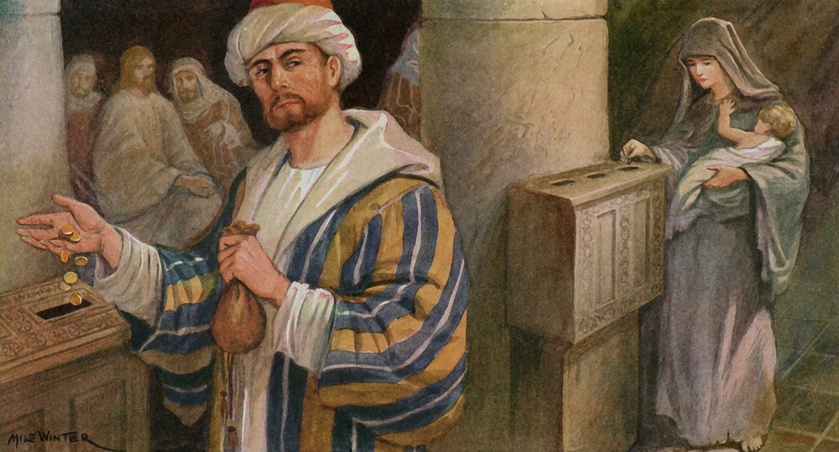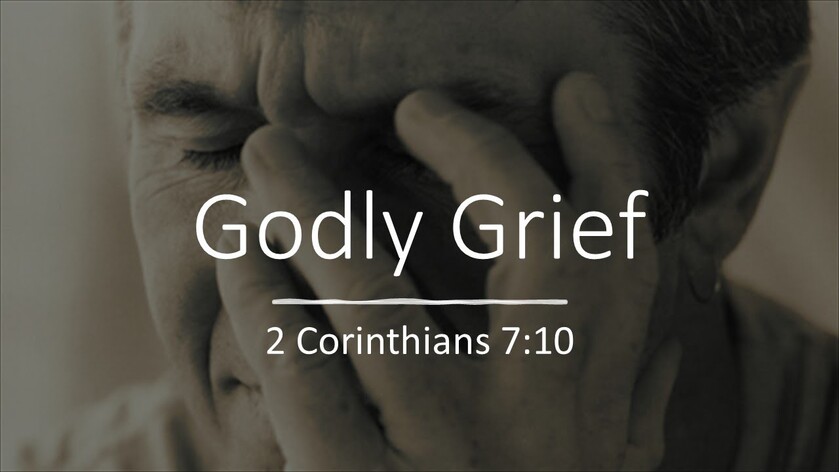Reflecting on Gnosticism, Atheism, and Utopian Ideals in Childhood’s End
Jude 1:14-15
It was also about these that Enoch, the seventh from Adam, prophesied, saying, "Behold, the Lord comes with ten thousands of his holy ones, to execute judgment on all and to convict all the ungodly of all their deeds of ungodliness that they have committed in such an ungodly way, and of all the harsh things that ungodly sinners have spoken against him."
The Bible describes angels as personal, spiritual beings with intelligence, emotions, and free will, qualities shared by both holy angels and their fallen counterparts. They are spirit beings without inherent physical bodies, though they can assume human-like forms when needed (Genesis 18:1-2). Angels possess knowledge beyond humans, gained from their proximity to God and observation of creation, but their understanding is limited, they don’t know the exact timing of end-time events (Matthew 24:36).
Holy angels serve God unwaveringly, praising Him continually and rejoicing in His works.
Job 38:3-7
Dress for action like a man; I will question you, and you make it known to me. "Where were you when I laid the foundation of the earth? Tell me, if you have understanding. Who determined its measurements—surely you know! Or who stretched the line upon it? On what were its bases sunk, or who laid its cornerstone, when the morning stars sang together and all the sons of God shouted for joy?"
Their primary roles include acting as messengers (the word "angel" means "messenger" in Hebrew and Greek), delivering divine judgments, answering prayers, protecting believers, and even escorting the righteous to heaven at death. For instance, an angel encouraged Paul during a storm (Acts 27:23-24).
Importantly, angels are a distinct creation apart from humans; mortal people don’t become angels after death, as humans are made in God’s image (Genesis 1:26), while angels are not. And they observe Christian life with interest.
1 Corinthians 4:9
"For it seems to me that God has put us apostles on display at the end of the procession, like those condemned to die in the arena. We have been made a spectacle to the whole universe, to angels as well as to human beings."
Have you ever prayed for divine intervention and protection by angels?
Psalm 34:7
"The angel of the Lord encamps around those who fear him, and delivers them."
Reflect: How does knowing angels protect and serve under God’s command encourage you in trials?
In contrast, demons are fallen angels who rebelled against God alongside Satan, their leader.
Revelation 12:9
"And the great dragon was thrown down, that ancient serpent, who is called the devil and Satan, the deceiver of the whole world—he was thrown down to the earth, and his angels were thrown down with him."
This demonic rebellion is alluded to in passages like Isaiah 14:12-15 and Ezekiel 28:12-15, where Satan’s pride led to his fall, possibly taking one-third of the angels with him. Some demons are already imprisoned in darkness awaiting judgment (2 Peter 2:4), while others roam as "spiritual forces of evil" (Ephesians 6:12), opposing God’s people and plan (Daniel 10:13).
Jude 1:6
"And the angels who did not keep their positions of authority but abandoned their proper dwelling—these he has kept in darkness, bound with everlasting chains for judgment on the great Day."
Demons are spirit beings, therefore they can possess humans (Matthew 8:16; Mark 5:1-20), causing physical and spiritual torment, but true believers indwelt by the Holy Spirit cannot be possessed.
1 John 4:4
"Little children, you are from God and have overcome them, for he who is in you [The Holy Spirit] is greater than he who is in the world."
Demons promote deception, and false doctrines. They operate in a hierarchy under Satan. But they are ultimately defeated through Christ’s cross.
Colossians 2:15
" He disarmed the rulers and authorities [Probably demonic rulers and authorities] and put them to open shame, by triumphing over them in him [that is, in it, the cross].
The Book of Enoch, is an extra-biblical text and is claimed to be an ancient Jewish text from the Second Temple period. And it expands on Genesis 6:1-4’s "sons of God" and Nephilim. It portrays angels in a heavenly court, with archangels like Michael, Uriel, Raphael, and Gabriel interceding for judgment on the wicked fallen angels known as "Watchers" led by Sêmîazâz (Samyaza) and Azâzêl, who descend to Earth, swear an oath on Mount Hermon, and mate with human women, producing the "Nephilim".
The Nephilim are said to be the giant offspring of this human/angelic joining. They are described as up to 300 ells tall, but if that is correct (if 1 ell = 7.5 ft) that would mean they could stand as much as 2,250 Feet tall. That would make them more than half a mile tall, probably exaggerated. They are described as devouring resources, turning violent, and responsible for corrupting humanity.
The fallen angels teach forbidden knowledge, instructing humans in weaponry, metals, and cosmetics, enchantments, astrology, and herbs, leading to widespread sin, prompting the Flood as divine judgment. Enoch teaches that the spirits of the slain Nephilim become demons; evil, rogue entities causing ongoing harm. The book of Enoch goes on to tell of God commanding His archangels to bind the Watchers: Raphael imprisons Azâzêl in darkness, Gabriel incites the Nephilim to self-destruct, and Michael binds Sêmîazâz for 70 generations until final judgment in fire.
It's all very interesting and makes for great movie-making. For instance, the other day I watched Childhood's End, a film adaptation of Arthur C. Clarke's novel. In his story, classic demonic looking devil-like beings who are not malevolent visit earth and end all wars, crime, sickness and destruction. They come as benevolent facilitators of humanity’s end as we know it. The close of our "childhood" phase evolving on into cosmic maturity, ultimately transcending physical form to merge with the "Overmind" in an explosive ascension, destroying Earth in the process. The Overlords descend to Earth, impart advanced knowledge indirectly through their rule, and oversee a transformation producing superhuman offspring who destroy the old world. I sensed a demonic deception: a false utopia mimicking the Antichrist’s period of peace. The story borrows from Revelation’s apocalyptic themes: a benevolent "invasion" leading to a new era, children ascending in a "pillar of fire" like a rapture. And ultimately Earth’s destruction (paralleling the new heaven and earth in Revelation 21:1).
Clarke’s narrative doesn’t explicitly reference the Bible, but its does resonate with end-times prophecy, the nature of angels and demons, and the cosmic struggle between good and evil. And there is this underlying sense that religion is the real enemy. Clarke's story seems to emphasize scientific evolution over divine intervention, with remarks like "Science is the only religion of mankind", or exemplified by lines like "The stars are not for man". As I watched I couldn't help but feel like this whole story is drawing from a Gnostic perspective. He creates a spiritual vacuum, one that Scripture fills with the active presence of the Holy Spirit (John 14:26).
Clarke’s atheistic tale ultimately leaves a void without God, contrasting Scripture’s hope. It smelled like it was preaching collectivism (communism or utopian ideology).
I'll say this,
2 Corinthians 11:14
"Satan disguises himself as an angel of light."
When we try to sort out the spirit realm and get to looking into angels and demons, we need to ask our God , Jesus Christ, king of the universe, for discernment. We need the help of the Holy Spirit in a world of "overlords", be they cultural, technological, or spiritual, especially those that promise utopia but deliver stagnation. That's the one thing I did notice that was missing in Clarke's story, no Holy Spirit.
What is Gnosticism?
Gnosticism is an ancient heresy blending philosophy and mysticism, and suggests that the material world is a flawed creation, made by a lesser deity (the Demiurge), from which enlightened souls must escape in order to unite with a higher, transcendent divine pleroma (fullness, or "Overmind" in Clarke's story). The children’s psychic evolution and Earth’s destruction mirror the Gnostic myth of breaking free from the Demiurge’s domain, but Clarke inverts it secularly. In his story the Overmind isn’t God but a cosmic evolutionary force. Gnosticism’s "secret knowledge" for salvation parallels the Overlords’ hidden agenda, but Scripture warns against such deceptions (Colossians 2:8), urging reliance on Christ’s revealed truth. Ultimately Gnosticism is void of any hope. Without the Holy Spirit’s guidance, humanity’s "end" is absorption into nothingness, not a vibrant eternal life in God’s presence (John 10:10).
Biblically, this Gnostic story contrasts sharply with God’s affirmation of creation as "very good" (Genesis 1:31) and the promise of bodily resurrection (1 Corinthians 15:42-44), where individuality is preserved in eternal communion with a very personal Creator.
Why is any of this important for us today in our realtime day-to-day lives?
We need to pray for the Holy Spirit’s illumination in order to discern modern "gnostic" narratives cropping up in the AI evolution, through the globalist transhumanism agendas, or any spiritual movements that devalue the human body and promote elite enlightenment.
These atheist beliefs portray faith as childish superstition to outgrow, with science as the true "religion" leading to cosmic maturity. Where divine concepts are reimagined as advanced technology or evolution, stripping them of any supernatural reality. Clarke’s dismissal of religion as an enemy ignores how faith inspires science. This creates a profound emptiness in humanity. Without the Holy Spirit, whom Jesus calls the Comforter and Teacher (John 14:16-17), the scientific utopian story’s "hope" is impersonal transcendence, not relational redemption.
From our faith perspective: Atheism’s void is filled by God’s pursuit of us (Romans 5:8), and true discernment comes from the Spirit, who testifies to Christ (1 John 4:1-3).
For Reflection: In a culture echoing Clarke’s views, where tech promises salvation, how does Romans 1:20, reveal God’s existence through creation?
"For since the creation of the world God’s invisible qualities—his eternal power and divine nature—have been clearly seen, being understood from what has been made, so that people are without excuse."
Seek the Holy Spirit’s conviction to stand firm against atheistic narratives that glorify human (or alien) ingenuity over divine sovereignty. Meditate on Ephesians 1:17-18, praying for the Spirit of wisdom and revelation.
"that the God of our Lord Jesus Christ, the Father of glory, may give you the Spirit of wisdom and of revelation in the knowledge of him, having the eyes of your hearts enlightened, that you may know what is the hope to which he has called you, what are the riches of his glorious inheritance in the saints"
Prayer:
Heavenly Father, King of the universe and Lord over all seen and unseen realms, we come before You in humble gratitude for the revelations in Your Word. Lord Jesus, just as You triumphed over the powers of darkness on the cross, grant us wisdom to recognize the "overlords" of this age, whether cultural ideologies, technological temptations, or spiritual forces, that promise utopia but lead to emptiness. Help us to test every spirit, as Your Word commands, and to cling to the hope of Your kingdom. Holy Spirit, fill us anew with Your power, that we may walk in victory, protected by the armor of God, and shine as lights in a darkening world. May our lives reflect Your glory, drawing others to the saving knowledge of Christ. In the mighty snd Holy name of Jesus, we pray. Amen.



















